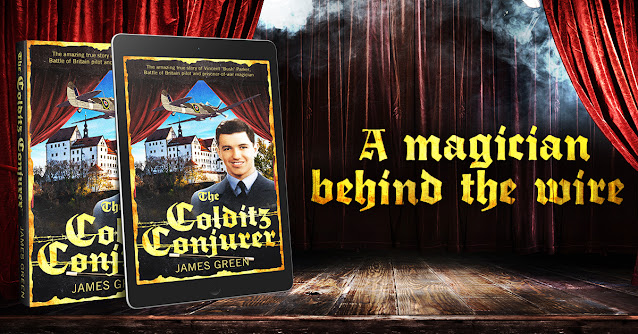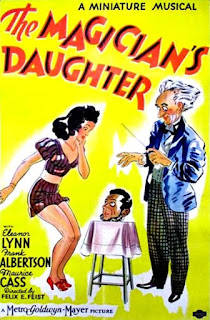Magic over the airwaves
A host of magicians achieved considerable success from their appearances on radio during World War Two, but not all actually performed any tricks. Here's a few of them:
J. B. Priestley
Prime Minister Winston Churchill used the radio to great effect, cajoling and encouraging unity on the Home Front. Second only to Churchill in popularity for his wartime broadcasts, was famed English novelist and playwright, J. B. Priestley (1894-1984). He drew audiences of millions for his Postscripts radio ‘chats’, broadcast on Sunday night through 1940 and again in 1941. An estimated forty percent of the adult population listened to the programme. A World War One veteran and member of the Magic Circle, Priestley’s broadcasting was credited with strengthening civilian morale during the Battle of Britain. Graham Greene wrote that Priestley “became in the months after Dunkirk a leader second only in importance to Mr. Churchill. And he gave us what our other leaders have always failed to give us – an ideology”.
A. J. Alan
Leslie Harrison Lambert (1883-1941) was a member of The Magic Circle and a well-regarded hobbyist magician. He performed especially at society events, and appeared before Queen Mary and The Prince of Wales (Edward VIII) twice.
Aside from his interest in magic, Lambert wrote short stories. In the 1920s, he contacted a member of the B.B.C to suggest he might tell one of his own short stories on the radio. This was accepted and so, as A. J. Alan (a pseudonym), he broadcast My Adventure in Jermyn Street, on 31 January 1924.
Following his immediate success, he quickly became one of the most popular broadcasting personalities of the time. He went to considerable trouble over writing each story, taking a couple of months over each one, and only broadcasting about five times a year. He carefully constructed an apparently extemporary, conversational, style making his stories seem like anecdotes concerning strange events that had happened to him. The endings were whimsical and unexpected. Many of his stories were subsequently printed in newspapers and magazines and were included in anthologies of short stories.
From 1937, Lambert's health was not good, so he reduced his radio work and made his last broadcast on 21 March 1940. He died on 13 December 1941, a week after the Japanese attack on Pearl Harbour and America’s entry into the war.
Robert Harbin
Despite the ongoing battle in the skies in 1940, magician and serving soldier Robert Harbin (1909-1978) was given leave every Tuesday afternoon so he could travel to London to emcee a radio show broadcast from the Criterion Theatre (which had been requisitioned by the B.B.C. because its sub-ground design made it an ideal studio, safe from the London Blitz). This continued through into 1941. Around the same time, Harbin filmed several shorts for British Pathé. After, he ended up as a Lieutenant Colonel, managing entertainments for troops in Egypt, the Middle East and India.
Robert Harbin performs a newspaper trick on a British Pathé film short (1940)
(Source: British Pathé)
Sirdani
Perhaps the most popular magician to entertain on the radio during the war, was Sirdani (1899-1982). Born Sid Daniels in Mile End, London, Sirdani played an Egyptian gilly-gilly man. By the onset of war, he had firmly established himself as a comedy character magician, and had appeared as himself in several films and toured overseas. His catchphrase "Don't be fright!" (short for "don't be frightened" and typically used when he was asking an audience member to help him with a trick) became a household phrase. When someone was scared, perhaps because of an impending air raid or military operation, the phrase "Don't be fright!" was often uttered by a family member, friend or colleague.
Sirdani (1945)
(Source: British Film Institute)
In August 1945, in a new angle in radio-magic, Sirdani performed an international magic trick, for the B.B.C.’s Atlantic Spotlight, a weekly broadcast to America. A pack of playing cards was held on both sides of the Atlantic, without previous arrangement, or sight. Sirdani named each card selected in New York and London. The Conjurors’ Magazine, described the effect as, “a most novel form of radio-magic, something new and interesting”.
He later wrote-up the tricks he taught during the Navy Mixture shows into a book, called Don't Be Fright (1946).
In America: Joseph Dunninger and Felix Greenfield
Over in America, magicians were discovering the power of mental magic over the radio. From 1943 to 1944, Joseph Dunninger (1892-1975) had a half-hour weekly show where he predicted newspaper headlines, answered unseen written questions from the studio audience, predicted phone numbers selected from phone books etc. Felix Greenfield (1917-1974) achieved some success with a similar approach, introducing more commerciality by predicting menu items chosen by a listener from a menu of a restaurant who had paid for advertising, and other such effects.
Post-war: The Piddingtons
After the war ended, other magicians found fame on the radio. Australian Sydney Piddington, who had been held by the Japanese as a prisoner-of-war in Changi Prison in Singapore, was one of these. Along with his wife Lesley, they performed a stage and radio telepathy act, which saw them achieve huge success. Today, they are still regarded as one of the greatest two-person telepathy acts of all time.
Like Sirdani's international magic trick, many of the Piddington's effects were accomplished while Sydney and Lesley were in different locations. In one show, Lesley was kept under armed guard in the Tower of London, while Lesley was in a B.B.C. studio. Despite their separation, Sydney was still able to read Lesley's mind correctly.













Comments
Post a Comment